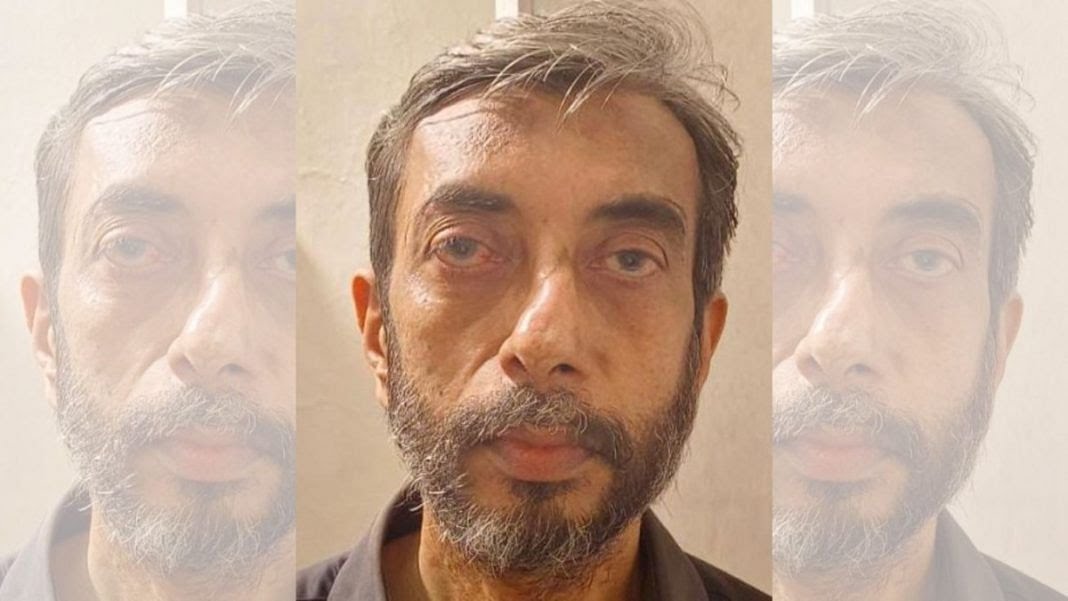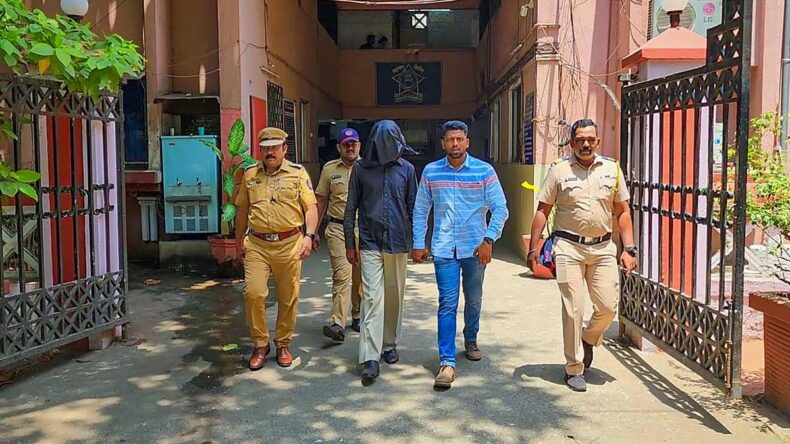New Delhi: In a shocking and disturbing incident reminiscent of the notorious Shraddha Walkar murder case, a man has been arrested near Mumbai for the brutal killing of his live-in partner and the subsequent dismemberment and disposal of her remains.

Credit: istock photo
The victim, 32-year-old Saraswati Vaidya, was found in her flat on the seventh floor of the Geeta Nagar section of Mira Road, Mumbai. Manoj Sane, 56, the accused, had been living with Vaidya for the previous three years.
The gruesome murder came to light when neighbors of the Geeta Akash Deep Building Flat J-704 reported an unbearable stench emanating from the apartment. Upon investigation, the police stumbled upon a horrific scene.
It was revealed that Sane had allegedly killed Vaidya and then dismembered her body into multiple pieces, some of which he had boiled in a pressure cooker.
The police found buckets filled with blood and body parts in the apartment, along with a tree-cutting machine believed to have been used in the gruesome act.
Sane reportedly confessed to cutting up the body and admitted to boiling the pieces or grinding them in a mixer. It was estimated that the body had been divided into around 20 pieces, with only Vaidya’s feet and a few other body parts recovered by the authorities.

Image source: ANI
Compounding the horrific nature of the crime, the summer heat accelerated the decomposition process, making it even more challenging for the police to carry out the recovery operation.
Furthermore, the absence of a refrigerator in the apartment suggested that Sane attempted to mask the odor using air fresheners. The police promptly arrested Sane on the night of the discovery.
According to Sane’s statement to the police, Vaidya was deeply in love with him. He further revealed that there was no love from his side, and she was like a daughter to him.
He said that Vaidya was very possessive and often suspected him of infidelity whenever he returned home late.
Sane also said that he felt compelled to dispose of her body after discovering her lifelessness on the floor of their flat. Fearing the implication of her death, he took the gruesome step of dismembering and disposing of the remains.
As investigators delved deeper into Vaidya’s background, they uncovered her troubled past. Raised in an orphanage in Ahmednagar, she was living with her maternal uncle in Mumbai. Vaidya had initially met Sane, who worked at a ration shop, in 2014 while residing in Borivali.
Sharing the same community and both being single, they gradually grew closer. With limited career prospects as a school dropout, Vaidya became increasingly reliant on Sane, eventually leading to their decision to move in together in the Mira Road flat three years ago.
In a surprising turn, Sane also disclosed to the police that he and Vaidya had never engaged in a physical relationship due to his HIV-positive status.
The shocking murder case has sent shockwaves through the country, highlighting the dire consequences of unresolved conflicts and the importance of early intervention in troubled relationships. It serves as a grim reminder of the need for increased awareness and support systems for those living in such circumstances.
As the investigation unfolds, authorities will delve deeper into the motives and circumstances surrounding the heinous crime committed by Manoj Sane.
The Mumbai murder is an addition to the growing list of recent gruesome murders
In a distressing trend, gruesome murders have been haunting society, with the recent cases of violence sending shockwaves through the community. From the heart-wrenching Shraddha Walker murder case to the horrifying Shahbad Dairy murder case, where Shahil Khan ruthlessly stabbed his girlfriend to death in public, it is evident that such heinous acts are on the rise.
These chilling incidents paint a grim picture of a society grappling with escalating brutality. As communities reel from the shock of these events, it is imperative that law enforcement agencies, social organizations, and individuals collectively address the root causes of such violence, striving for a safer and more compassionate future for all.












